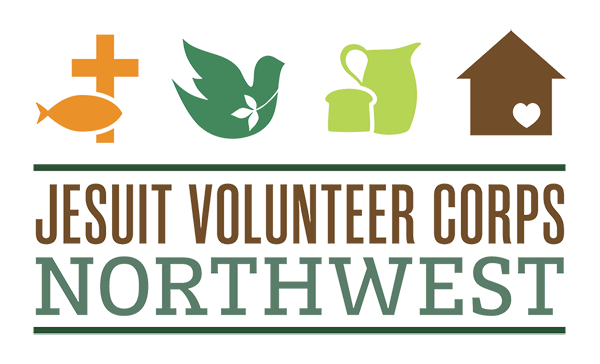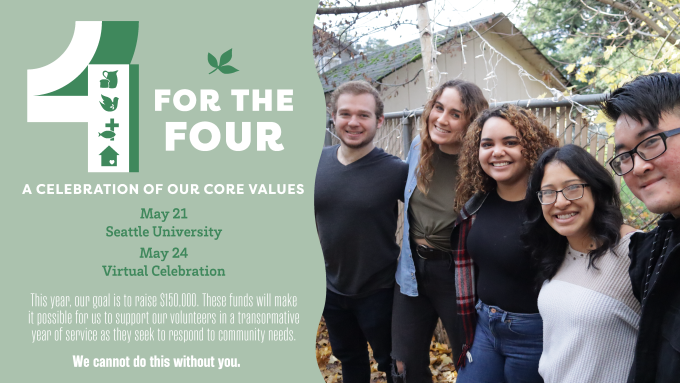Caitlin is a Jesuit Volunteer Corps (JVC) Northwest AmeriCorps member in Wenatchee, WA, at The Northwest Justice Project. She also served last year in San Antonio, TX, with JVC.

I grew up thinking of “service” as exactly what I am doing now, as a Jesuit Volunteer AmeriCorps member. For the majority of my privileged life, I was blinded to the fact that for many Americans, joining the Armed Forces is a way to make it out of poverty, or to pay for school, or to simply commit to something greater than themselves. It’s a calling for a lot of people, but it’s also a means to an end for many Americans, especially young men and women in our poorest and most marginalized communities. Many veterans find themselves homeless after their discharge, especially if it is anything other than honorable, with few opportunities for civilian life. Many endure psychological and/or family life struggles, and those without support or who are afraid of reaching out for support self-medicate and develop substance abuse issues.
This is the reality in our country; it is neither a criticism of the Armed Forces as a whole nor of those who so bravely have given a significant part of their lives to be of this type of service to our country. It is the real situation Veterans face after their time of service. The lack of civilian life support for veterans and the existence of barriers to self-sufficiency is a reality, but it is a reality that many doctors, social workers, families, community organizers, and attorneys work to “combat,” in another sense, every day.
The Northwest Justice Project, where I serve in Wenatchee, Washington, has a statewide Veterans Project that provides free civil legal assistance specifically to low income veterans. The program focuses on finding better ways to help veterans access the legal system and educates on anti-poverty legal issues that adversely and disproportionately affect veterans. I was given the opportunity to participate in a Veterans’ Stand Down in Wenatchee on September 27th. Stand Downs are events that provide services and connections to homeless and economically marginalized veterans. They are commemorative of the service the veterans have given to their country, regardless of the circumstances surrounding their discharge. Stand Downs create solidarity among veterans and promote awareness of veteran presence in communities in which they are held. In two days, over 2,000 veterans stopped by the National Guard Armory in Wenatchee to pick up food, warm clothing, and talk to representatives of the local social services organizations in the area. We spoke to veterans who had questions about legal problems, Veterans’ Administration, criminal records, access to healthcare, and about navigating the court system. There is a certain kind of liberation in serving those who serve us by answering questions that will help them understand their rights that are protected by being citizens of the United States of America.
We all come into a year of JVC Northwest AmeriCorps service knowledgeably passionate about something (or everything), may it be a cause, a marginalized group of people, an experience of solidarity, environmentalism, etc. I challenge you to take the month of November, the month in which we commemorate those who give a different kind of service to our country, and find a way in which to serve them. Attend an event like a Veterans Stand Down, or a commemorative Veteran’s Day event, or simply invite a veteran over for dinner with your community to talk to him or her about their experience in the military. Maybe you are a veteran yourself, or have a close friend or relative who has served in the Armed Forces. From the bottom of my heart, I thank you, and challenge you to make yourself visible in your community you are now serving, so that more veterans may feel comfortable to share and less afraid to get help if it is needed.


